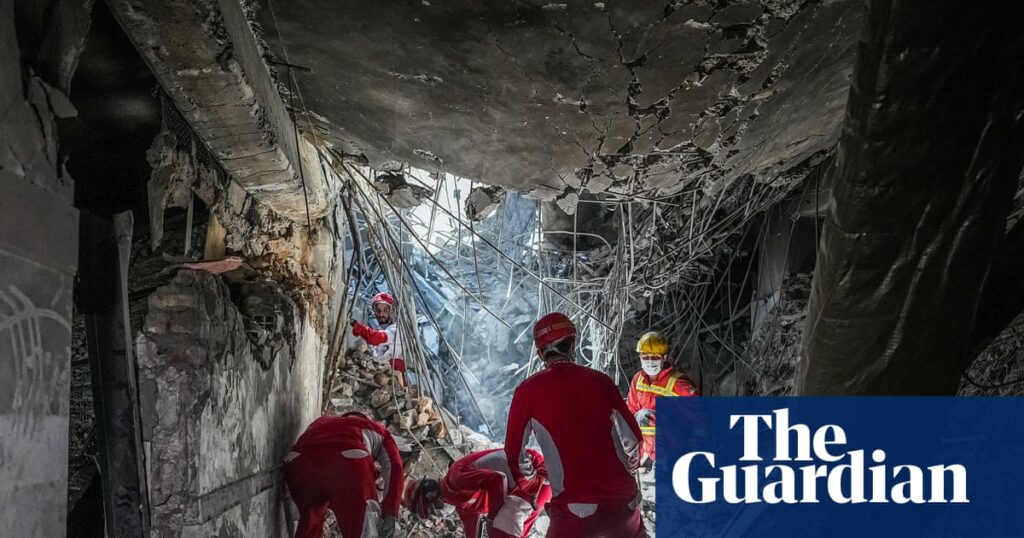Israeli airstrikes on Tehran’s Evin prison in June killed scores of detainees, visitors and staff in what Human Rights Watch (HRW) has called an “apparent war crime”. Iranian authorities have since subjected survivors to abuse, enforced disappearances and inhumane detention conditions, the rights group said on Wednesday.
HRW’s investigation, based on satellite imagery, videos and witness accounts, found the 23 June Israeli airstrikes destroyed visitation halls, prison wards, the central kitchen, the medical clinic and administrative offices. No evident military targets were identified in the facility, which held more than 1,500 prisoners at the time, many of whom had been jailed for peaceful activism.
“Israel’s strikes on Evin prison on June 23 killed and injured scores of civilians without any evident military target in violation of the laws of war and is an apparent war crime,” said Michael Page, deputy Middle East director at HRW. “The Israeli attack placed at grave risk the already precarious lives of Evin’s prisoners, many of them wrongfully detained dissidents and activists.”
At least 80 people died in the attack, which occurred during visiting hours, when public areas were at their busiest. HRW described the strike as unlawfully indiscriminate. Israeli officials have called Evin a “symbol of oppression” but have provided no evidence of military use.
The prison attack took place during a 12-day conflict between Israel and Iran in which hundreds of civilians were killed on both sides. US-based rights group Human Rights Activists in Iran (HRAI) said the Israeli strikes on Iran resulted in at least 5,665 casualties, including 1,190 killed and 4,475 injured, both military and civilian. The Iranian security forces also arrested 1,596 individuals during the 12-day war, the group added.
In the aftermath, HRW said, Iranian authorities moved prisoners to two main detention centres in Tehran province – Shahr-e Rey prison, or Qarchak, for women, and the Greater Tehran Central Penitentiary, or Fashafouyeh, for men – shackling male inmates in pairs, beating some with batons and using electric shocks (on return to Evin) for protesting their handcuffing and the transfer of death row prisoners. Women were locked in their ward without water or phone access before being moved on 24 June to Qarchak, notorious for overcrowding and inhumane conditions.
“Iranian authorities have committed a catalogue of violations against prisoners in the aftermath of the attack, including beatings, insults, and threats during transfers, and holding prisoners in appalling conditions that have endangered their lives and health. Death-row inmates and those forcibly disappeared are now at heightened risk of torture or execution,” added Page.
Some detainees were returned to Evin 46 days later only to face similar violence during transfers. Authorities have withheld information on the fate and whereabouts of some detainees held by security and intelligence agencies, including dissidents, human rights activists, and dual or foreign nationals.
Among them is Swedish-Iranian physician Ahmadreza Djalali, on death row since 2017. Families have reported only brief, monitored calls from missing prisoners, with no information on their location or condition, a situation HRW says amounts to enforced disappearance.
Transferred prisoners have faced overcrowded, insect-infested cells, with some forced to sleep on floors. “Iranian authorities should not use Israel’s strikes on Evin prison as another opportunity to subject prisoners, including those who should never have been in prison in the first place, to ill-treatment,” he said.
HRW has called for independent investigations into violations by both Israel and Iran, with those responsible held accountable for possible war crimes.

